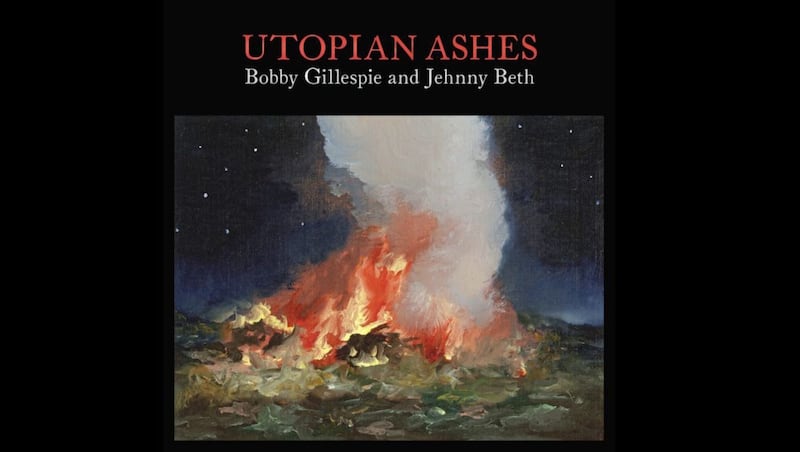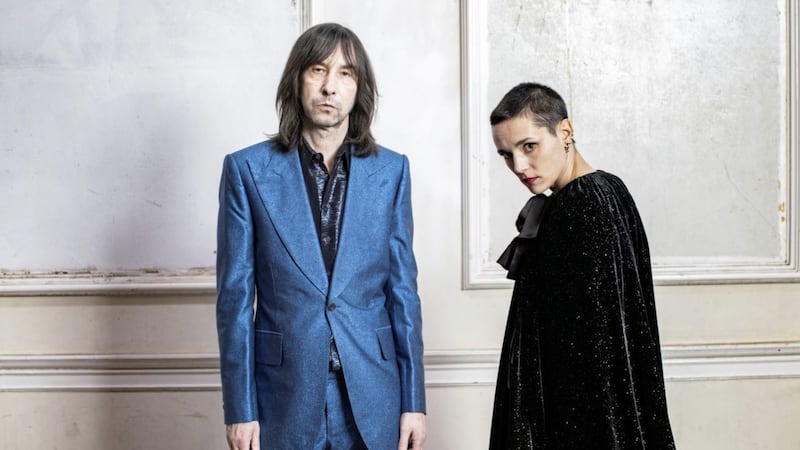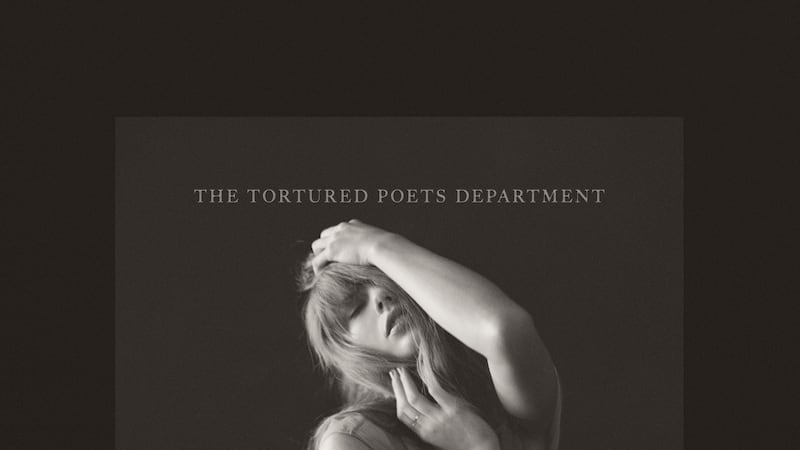BOBBY Gillespie's great hero, the Celtic manager Jock Stein, would often think back to when he was a miner feeding rats in the darkness long before he became the first British manager to win the European Cup.
In the five years since Primal Scream's last album, Chaosmosis, Gillespie has been digging deep lyrically to create some of his best work. The lyrics are less about societal decay and political revulsion in favour of a more confessional approach.
Drugs issues are well behind him but his band have suffered casualties in the loss of co-founder and guitarist Robert Young who died in 2014.
"I put myself in some dangerous situations, suffered black dog years of degradation," says Bobby at the start of the visceral spoken word intro to You Can Trust Me Now.
It's one of nine tracks that form Utopian Ashes, a duets album with Savages frontwoman, actress and solo singer Jehnny Beth.
The pair collaborated on the project together and apart in Paris and London since hitting on the germ of an idea in 2016. When the album was announced alongside a single and promo video for Remember We Were Lovers during the winter lockdown, it reminded many that a popular song still has the power to stop you in your tracks, with Gillespie receiving a strong reaction from friends – as well as a musical legend he first became a fan of as a teenage working class punk rocker in Glasgow.
"A lot of women got in touch saying they were crying and that it really affected them in their heart, I thought 'we've done a good job here, we've written music that is affecting people emotionally'," he says.
"Iggy Pop also said some beautiful things about it on his radio show which meant a lot."
Gillespie deployed three of his Primal Scream bandmates while Beth brought in her long-term partner and musical collaborator Johnny Hostile on bass.
"Bar the Rolling Stones, no other band can play with this kind of feel," suggests Gillespie of his band, including Andrew Innes, a friend since their teens whose melancholic slide guitar is as affecting as ever, as are the light piano flourishes from his other long-term Scream bandmate, Martin Duffy.
"It's one of the best things I've ever been involved with, co-written or sang on. I knew it had the potential to be a big song, a special song from the get-go and I'm very proud of it," says Gillespie.
"I worked hard on the lyrics for the verses. I would work for months to get a single line right, like: 'We're martyrs in a marriage/In a war we're gonna lose'. I tried different lines, it didn't come easy."
The song embodies some familiar elements of the band he co-founded almost 40 years ago. Most apparent are traces of come-down ballads such as Damaged from Screamadelica, which celebrates its 30th anniversary this year, and (I'm Gonna) Cry Myself Blind,a single that appeared on follow up Give Out But Don't Give Up.
But as Gillespie suggests, there is an "emotional brutality" that separates this from previous efforts.
Jehnny Beth adds: "When Bobby started writing I knew this was some of the best work he had ever done, this kind of deeply affecting, personal writing. I was glad this was what he wanted to do, it was inspiring because he was inspired and that's what's great about collaboration.
"I want to say he was 'possessed', but maybe that's not right the word."
Gillespie disagrees: "No, 'possessed' is good, that's true."

Songs such as You Can Trust Me Now are a refreshing antidote to much of what is played on mainstream radio: this galloping but tender country-soul ballad finds Beth harmonising with Gillespie and trading verses.
"Backing vocals is something I've always paid attention to," she says of the track, before Gillespie adds: "That's how I learned to sing, listening to Mick Jones on Clash records."
Gillespie's concern of a couple in trouble but not finished provided a "grown-up" concept for the overall work.
"It's a statement record, no-one else is making music like this... you come back with a record like this," he adds.
While known for the pioneering and experimental work on the likes of Screamadelica, Vanishing Point and XTRMNTR, Gillespie admits there are none of the "electronic" or "pile-driving" full-throttle sounds fans might expect.
In this rekindling of the Auld Alliance, Gillespie (59) has joined forces with an artistically raised French Catholic.
Born Camille Berthomier, Beth (36) has merged her poetic sensibility with Gillespie's more direct lyrical style.
"I had lyrics before Bobby came up with the theme," she says.
"Initially I was going on instinct, the lyrics I'd written were from the chorus of Remember We Were Lovers which were inspired by a Rilke poem and the idea of looking at someone else and commenting how you think they are doing from their body position."
After considering some "electronic soundscapes" the songs were stripped back to just an acoustic guitar and began life sounding like a "Neil Young dirge".
The finished effort is far from lo-fi with its lush orchestration and affecting Stax style horn section.
Even still, one of Gillespie's former band-mates thought it was a lockdown record. Messages of support were sent to the singer from Mani, the Scream's former bass player – also of The Stone Roses – and Irish musician Kevin Shields (My Bloody Valentine) who also enjoyed a stint in the band.
"Kevin said, 'It's amazing you got to make this in lockdown'; I didn't have the heart to tell him it was finished before and we planned to release it in 2020. He knew it was an analogue record."
Shields makes a fair point: the album sounds like it could have been recorded in 1971, making it a good fit for Jack White's Third Man Records.
At home, Gillespie is known to sing We're Gonna Hold On by George Jones and Tammy Wynette with his wife, the fashion stylist Katy England. Ballads such as this, as well as Gram Parsons's and Emmylou Harris's country torch-songs, abetted with a gothic, noirish refurbishment, provided a notable template for the work.
"The part I sing in the first verse, the guy is kind of admitting his failings and transgressions. It's about a person asking for re-admittance to the human race because they have put themselves out on the parameter and out in the woods," he says.
"They are coming back towards the campfire, they are asking for forgiveness really... and another chance. To ask for another chance is mutually beneficial; that's the basis of civilisation – empathy."
Utopian Ashes is released on July 2








